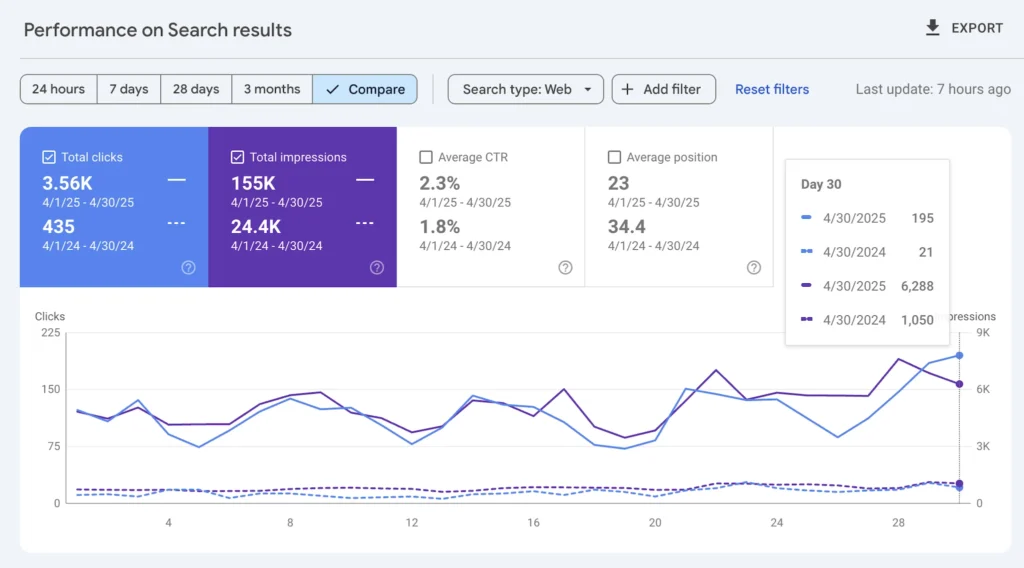Every few years someone calls time of death on SEO. Usually right before it surges again. This year, it’s AI that’s supposedly killed it.
I’ve been a bit of a naysayer when it comes to traditional SEO advice. Not because the fundamentals are wrong, but because search behaviour is shifting faster than most marketers admit. We’re not in a “new phase” of search. We’re at the leading edge of something much bigger. And what worked five years ago isn’t enough anymore.
This shift is pushing teams beyond traditional SEO and into AEO (Answer Engine Optimization), where the goal is not rankings, but being the source AI systems choose to answer questions.
SEO Isn’t Dead. It’s Just Everywhere Now.
AI didn’t erase SEO. It expanded the surface area. It made things messier. And, for the right kind of business, it created a massive advantage.
Rand Fishkin said it clearly in his recent piece on his Sparktoro blog, Search Everywhere Optimization:
“Search Everywhere Optimization = influence audiences in all the places they go to consume content about your topic… Everyone will assume that the ‘E’ in SEO always stood for Everywhere, and I don’t plan to correct ’em.”
Search behavior hasn’t died. It’s just diversified. People are still looking for answers—on Google, ChatGPT, Gemini, YouTube, Reddit, and platforms we haven’t even thought to optimize for yet. The job is still the same: show up with relevance and authority where they’re looking.
Here’s how that actually plays out today, and how we’re approaching SEO in 2025 across traditional and AI platforms.
1. Entity Optimization: The New Baseline
Large language models don’t rank web pages the way Google’s traditional algorithm does. They generate answers based on recognizable entities—people, companies, tools, products. If your brand isn’t being treated like a known entity, you’re unlikely to appear in their responses.
This is where the idea of LLM Visibility comes in. As Brian Dean puts it on the Backlinko blog:
“LLM Visibility is a metric that measures how often your brand or website is mentioned in AI-generated content, such as summaries or answers produced by large language models.”
That visibility doesn’t come from clever copywriting. It comes from signals that help AI systems verify your credibility.
To support this, we focus on:
- Claiming your Google Business Profile, Bing Places, and Apple Maps listings
- Adding schema markup that defines your business and services
- Getting listed in trusted directories like BBB, Yelp, and industry-specific sources
- Publishing content on platforms like LinkedIn, Reddit, and Medium, which LLMs frequently crawl
- Earning mentions in curated lists and comparison pieces that AI tools cite often
The more you show up in structured, trusted sources, the more likely AI models are to recognize and cite your business in relevant queries.
2. Structure and Clarity in Content
AI tools don’t love clever copywriting. They want clarity. They want content that’s easy to understand, easy to scan, and easy to summarize.
We’ve seen consistent results when we structure content like this:
- Clear, descriptive headings to organize thought
- Summaries at the top of longer posts
- Internal Q&A structure answering real user questions
- Short, direct paragraphs that mirror conversational language
Write for people. Structure for machines.
3. Branded Search Volume as a Signal
We’ve known for years that Google treats brand searches as a trust indicator. That now extends into AI search as well. If people search your business name, that behavior contributes to authority in both traditional and AI-based results.
To increase branded search without tricks:
- Post job listings (search volume spikes from candidates)
- Get featured in list-style content with strong headlines
- Produce YouTube videos that build name recognition
- Run light awareness ads to get more people looking you up directly
The more your name gets typed into search boxes, the more often it shows up as an answer.
Companies that win in AI search are already thinking in terms of AEO, not just traffic. If AI tools trust your brand enough to recommend it, your visibility will compound faster.
4. Old SEO Fundamentals Still Apply
There’s a myth floating around that AI search has made traditional SEO irrelevant. But the sites that rank well organically are often the same ones showing up in AI-generated answers. Lily Ray put it plainly:
“There is a huge overlap between the sites that do well in SEO and the sites most frequently cited in AI answers.”
That means backlinks, reviews, and reputation still matter. So does authorship, topical authority, and structured data.
Don’t ignore what’s always worked. These are the foundation.
5. Video Is a High-Leverage Channel
One area where AI search is still underutilized is video. Tools like Gemini, Google AI Overviews, and Perplexity are starting to cite YouTube content regularly, especially for how-to and product-related queries.
This is a huge opportunity for most businesses because video content is still less saturated.
The approach is simple:
- Create short, educational videos that address real user questions
- Upload them with clear titles, timestamps, and good descriptions
- Embed the videos in related blog posts to increase time on site
- Distribute clips on LinkedIn and other discovery platforms
We’ve seen video citations surface even for small channels, just because the structure and clarity were there.
Here’s the revised section with no em dashes, maintaining a clear and informative tone:
6. Ranking in Traditional Search Helps, but It’s Not the Whole Picture
It’s true that Google’s AI Overviews pull heavily from its own index. Glenn Gabe’s research confirms this. Most AI-generated answers today are still grounded in what performs well in traditional search.
“Google’s AI Overviews are powered by Google Search and heavily rely on Google’s index and ranking systems.”
If your site isn’t well-structured, crawlable, and trusted by Google, you’re starting at a disadvantage. And to be clear, the majority of search traffic today still comes from traditional organic results, not AI snapshots. As Glenn points out, AI Overviews currently drive less than 1 percent of traffic for most sites.
But that 1 percent won’t stay small forever.
The shift may be gradual, but the pattern is clear. AI-driven discovery is growing, and the way users interact with search is changing. Google is still dominant, but it is now delivering answers in a format that favors recognizable brands, trusted sources, and structured content.
Ranking in traditional search helps. But relying on it alone may give a false sense of stability. The businesses adapting now with stronger entities, clearer content, and broader visibility will be better positioned as AI search continues to evolve.
7. Local SEO Is More Relevant Than Ever
As AI results evolve, we’re seeing more emphasis on geographic relevance. This shows up in links to Google Business Profiles, service-area mentions, and citations in local news or directories.
For local or regional businesses, this means:
- Keeping local listings fully updated and accurate
- Prioritizing real reviews, not just quantity
- Building citations in high-trust local directories
- Creating city-level landing pages with structured info
This isn’t a new playbook. But it now impacts more surfaces than just the map pack.
They already had a solid foundation in place after we helped them with a strategic website redesign, and after making a few adjustments focused on clarity and entity recognition, they’ve started seeing some early results. Two recent leads mentioned finding them through LLM-driven search.
Here’s a look at their year-over-year performance in Google Search Console. Metrics are all steadily improving. It’s a good example of how small shifts in structure and visibility can make a difference, even without a full-scale content team.

8. Technical SEO is Still the Floor
Before chasing visibility in AI summaries or language models, make sure the foundation isn’t broken. That includes:
- Fast, mobile-optimized websites
- Valid SSL certificate
- No broken internal links or 404s
- Accessible sitemaps and robots.txt
- Clean, organized navigation
- About and Contact pages that clearly communicate legitimacy
It sounds basic, but most AI systems won’t cite content from untrustworthy or poorly structured sites.
Search is Expanding, Not Disappearing
We’re still in the early stages of AI-assisted search, and the dust hasn’t settled yet. But the patterns are already visible. Content that earns trust, offers real value, and shows up where people ask questions is winning. And that’s exactly what great SEO has always been about.
AI just widened the playing field.
If you’re building authority across channels, optimizing for clarity, and staying grounded in what actually helps users, you’re not behind. You’re in the best position to win.
Want help getting there? I help growing small businesses find more of their ideal clients to create a sustainable flow of quality leads. Interested in updating your strategy? Let’s talk.


